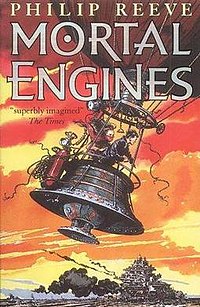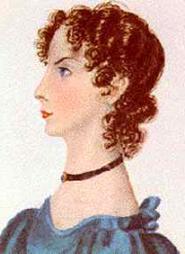 London, the city we deal with primarily, is one of the more kitted-out cities. Its population is divided into guilds, who work to improve and advance their city. The engineers, the most renowned and admired, study pieces of 'old technology' from the 20th century in the hope that one day they will be able to regain the weaponry and technology of the 1900s and 2000s. The Historians and archaeologists record and store relics of historical importance and the aviators and navigators steer the giant city on its way accross the hunting grounds. The story begins when Tom Natsworthy, an apprentice historian who has always daydreamed of adventure, finds himself cast out of the city of London into the outside, static world. For the first time in his life he is on terra-firma with only a horribly disfigured and emotionally unstable assassin girl, Hester Shaw, who has just failed to murder one of London's most respected and important Historians (and also Tom's hero), the influential explorer Thaddeus Valentine.
London, the city we deal with primarily, is one of the more kitted-out cities. Its population is divided into guilds, who work to improve and advance their city. The engineers, the most renowned and admired, study pieces of 'old technology' from the 20th century in the hope that one day they will be able to regain the weaponry and technology of the 1900s and 2000s. The Historians and archaeologists record and store relics of historical importance and the aviators and navigators steer the giant city on its way accross the hunting grounds. The story begins when Tom Natsworthy, an apprentice historian who has always daydreamed of adventure, finds himself cast out of the city of London into the outside, static world. For the first time in his life he is on terra-firma with only a horribly disfigured and emotionally unstable assassin girl, Hester Shaw, who has just failed to murder one of London's most respected and important Historians (and also Tom's hero), the influential explorer Thaddeus Valentine.I really do think that this is YA writing at its best. You know you're on to a winner from the first sentence...
“It was a dark, blustery afternoon in spring, and the city of London was chasing a small mining town across the dried-out bed of the old North Sea.”Not only is the world so brilliantly created, Mad Max via Dickens' London, but the characters are crafted to perfection; flawed, complicated and on most occasions stuck between a rock and a hard place. Which members of a post nuclear society have it easy? There really is no difinitive line between good and evil, there are only decisions and their consequences. The adult characters are exciting and full of stories of adventure, they're charming and energetic, but are almost always proven to be not what they seem. What does it take to trust a person?
We oversee a moral education, thanks to the unexpected experinces of Katherine Valentine, micro-socialite daughter of Thaddeus. She learns to question her sheltrered, comfortable life and begins to learn about the death and exploitation of the disadvantaged for the comfort and health of those of a higher social standing, the horrors that result from the over consumption of resources and the dangers of greed, technology and entitlement. She also learns about sacrifice and about living with the consequences of out actions.
I really did enjoy this a lot, Reeve's an excellent storyteller. He reveals just enough information at just the right time to keep you wondering and he has a very streightforward but engaging style of writing. It's certainly fast paced and full of advetnure and mystery, full of action, fights, chases and flames, revenge- also, PIRATES! If you like steampunk, Phillip Pullman, Cybermen, the futuristic dog-eat-dog survival element of the Hunger Games and/or monster wheeled cities wheeling around the desert, you will probably like this.




